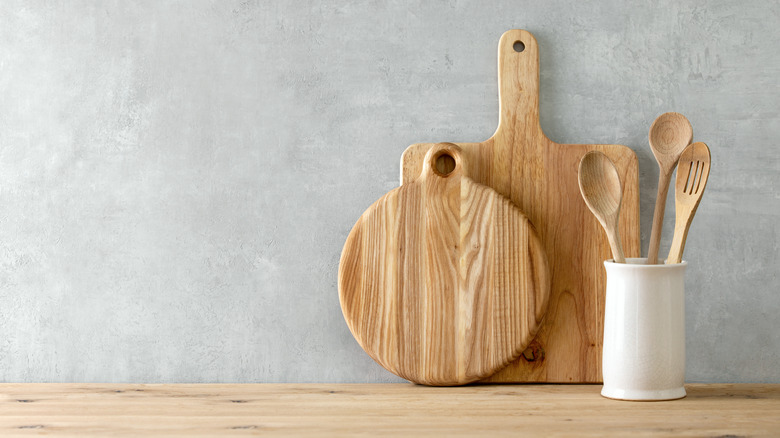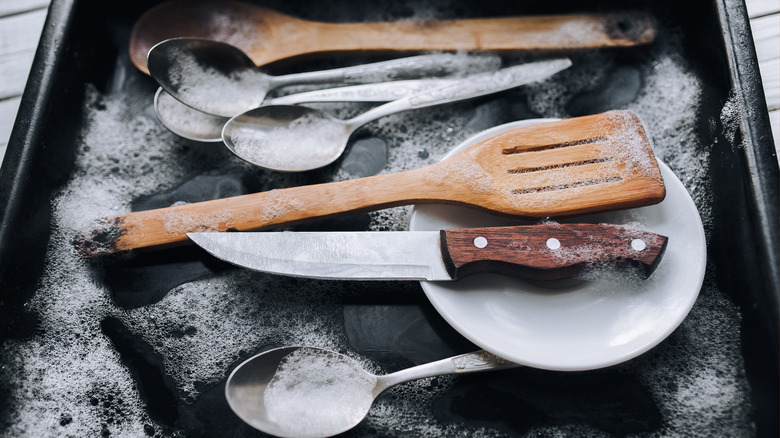Why You Should Always Clean Wooden Utensils As Soon As Possible
Take a look around your kitchen. Among your cast iron skillets, sharp chef's knives, and nesting glass baking dishes, we're willing to bet you've also got at least a few wooden utensils of varying shapes and sizes. And why not? Wooden spoons, spatulas, and other utensils are a staple for most home cooks thanks to their versatility. They work equally as well with cast iron pans as they do with nonstick, enamel, copper, and other materials (via Southern Living). They also don't conduct heat like metal does so you don't have to worry about burning yourself. And when wooden utensils are properly cared for, they are extremely durable.
But anyone who's ever possessed wooden utensils also knows that they're a bit finicky. They can't be washed in the dishwasher because their natural, protective oils will get stripped. They can't be dried lying flat because if they are, they'll warp and crack. And there's yet another important bit of maintenance that wooden utensils benefit from in order to keep them fresh and extend their lifespan.
Wash wooden utensils immediately so they don't absorb odors
In case you hadn't noticed, wooden utensils are porous, meaning they readily absorb water as well as flavors and odors (via Hygiene Food Safety). Not only is this kind of gross, but it can actually lead to bacteria growing in the utensils. To avoid this unsavory fate, MasterClass points out that it's best to wash your wooden utensils as soon as you can after use. At the very least, rinse them initially before following up with warm water and mild soap. Because food and bacteria can get trapped in the minute crevices within wooden spoons and other utensils, they also require periodic sanitizing, such as a 15-minute soak in hydrogen peroxide or a quick scrub with a simple paste of baking soda and water (via MasterClass).
Got all that down? Well, it's time to add one more step to the list: Sealing your wooden utensils. With overuse and multiple washings, the natural oils in the wood will evaporate, leaving it dry and prone to splintering. So after sanitizing spoons and letting them air-dry completely, MasterClass recommends rubbing them with pure beeswax or mineral oil, which will moisturize wooden utensils and help them last for a long time to come.

